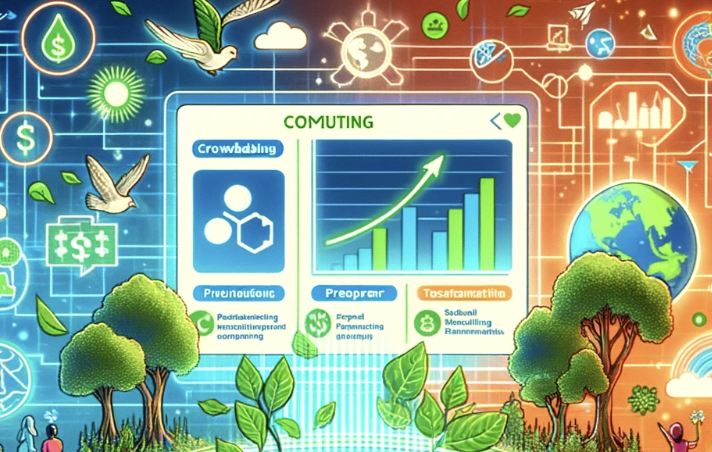In the digital age, the fusion of technology and finance has given birth to an era of innovation and efficiency, reshaping the landscape of banking and personal finance. This transformative journey is not just about technological advancements but also about creating a more inclusive, transparent, and customer-centric financial ecosystem. As we delve into the realms of digital banking, cryptocurrencies, and blockchain technology, we uncover the profound impact of this fusion on consumers, businesses, and the global economy. This exploration aims to dissect the components of digital banking's evolution, highlighting the role of FinTech, the rise of cryptocurrencies, and the potential of blockchain technology in forging the future of finance.
The Advent of Digital Banking: A New Era of Convenience and Accessibility
Digital banking has revolutionized the way individuals and businesses interact with their finances. Gone are the days of long queues and cumbersome paperwork; in their place, mobile apps and web platforms offer real-time access to banking services, from anywhere and at any time. This shift towards digital platforms has not only enhanced convenience but also significantly improved financial inclusion. People in remote or underserved areas, previously marginalized from traditional banking services, now have access to a world of financial opportunities right at their fingertips.

FinTech: The Catalyst for Change
The rise of Financial Technology (FinTech) companies has been a key driver behind the innovation in digital banking. By leveraging technologies like AI, machine learning, and big data analytics, FinTechs have been able to offer personalized banking experiences, predictive financial advice, and automated customer service. These advancements have set new standards for what consumers expect from their banking providers, pushing traditional banks to innovate or risk being left behind. Furthermore, FinTechs have democratized access to financial services, offering solutions like peer-to-peer lending and micro-financing, thus challenging the status quo of the financial industry.

Cryptocurrencies: Redefining Money
Cryptocurrencies have emerged as a radical force, challenging traditional concepts of money and banking. With the promise of decentralization, transparency, and security, cryptocurrencies propose an alternative to conventional fiat currencies and banking systems. While the volatility of cryptocurrencies like Bitcoin and Ethereum often captures headlines, the underlying technology—blockchain—holds the potential for far-reaching implications across the financial sector and beyond. Cryptocurrencies have also sparked a discussion about the nature of money, value, and trust, encouraging people to rethink the principles that underpin our financial systems.

Blockchain: The Backbone of a New Financial Infrastructure
Blockchain technology, best known for underpinning cryptocurrencies, offers a secure and transparent way to record transactions across a distributed network. Its applications in finance extend beyond cryptocurrencies, promising to revolutionize everything from payment processing and money transfers to compliance and fraud prevention. By enabling smart contracts, blockchain technology can automate and secure complex financial transactions, reducing the need for intermediaries and lowering transaction costs. Furthermore, blockchain's transparency and immutability could significantly enhance trust and accountability in financial transactions.
The Future of Finance: Opportunities and Challenges
As we venture into the future of digital banking, it's clear that technology will continue to play a pivotal role in shaping the financial landscape. The fusion of finance and technology offers immense opportunities for innovation, efficiency, and inclusion. However, this journey is not without its challenges. Issues such as data privacy, cybersecurity, regulatory compliance, and the digital divide pose significant hurdles that must be addressed to realize the full potential of digital banking.





